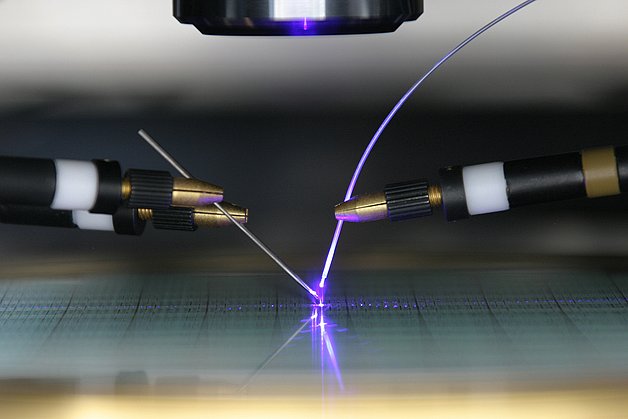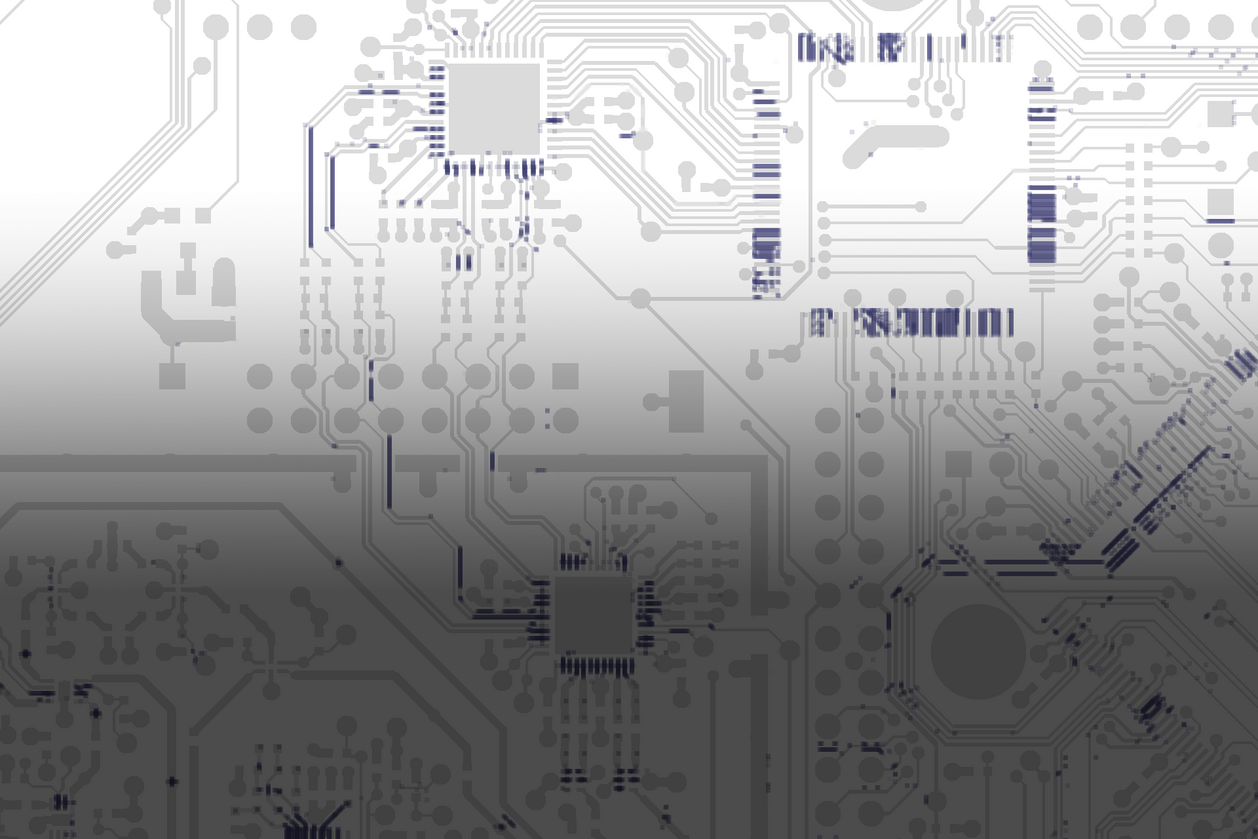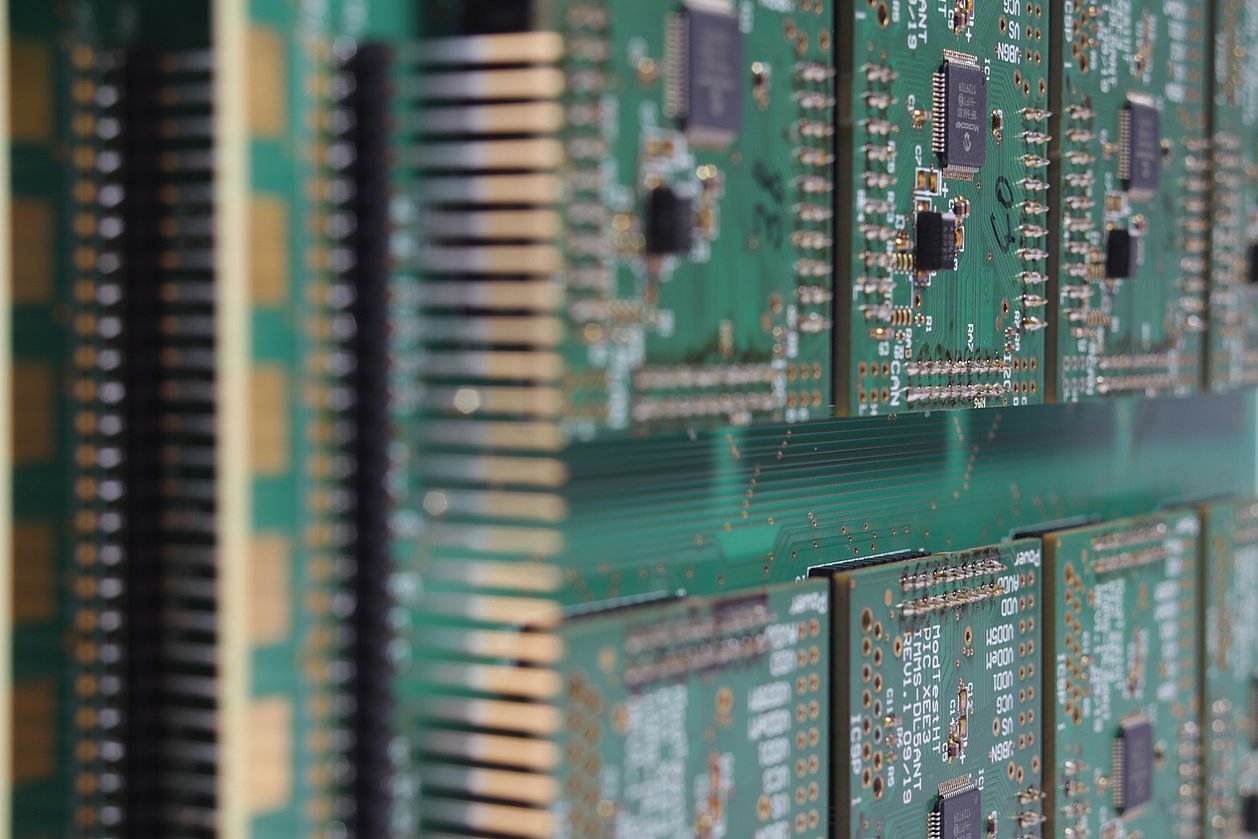Vincent Haude, B.Sc., master’s student and scientist at IMMS
“I really appreciate the working atmosphere at IMMS. The team is very open-minded and every door is always open to ask questions or contribute ideas. I really appreciate the open discussions and the dialogue with colleagues, even during lunch breaks.“
“Prof. Sommer drew my attention to IMMS during my undergraduate studies in electrical engineering and information technology at the Ilmenau TU. This was followed by a two-year student assistant position in the department of industrial electronics and measurement technology in Ilmenau. During this position, I was able to gain valuable practical knowledge, which helped me to understand the theoretical knowledge from my studies and link it to practice. I was also taught how to use a wide range of measuring equipment, which is only taught to a limited extent during my studies and was very useful to me during some of my practical courses at the TU.
After my student assistant position, I moved to the IMMS branch in Erfurt in 2022 to complete my mandatory internship there. As part of this, I developed a probe card for the final test of a sensor IC. The challenge here was to develop a contact arrangement that could reliably accommodate the small pitch and small size of the contacts. When developing this probe card, I particularly benefited from the various 3D printing technologies available at IMMS. My bachelor’s thesis in 2023 directly followed on from the internship. As part of this thesis, I developed circuit topologies that make it possible to pulse LEDs in the nanosecond range. Such short pulses are required for the technology of time-resolved fluorescence in medical diagnostics. When carrying out my measurements, it was necessary to measure photons in the nanosecond range. I benefited from the state-of-the-art measuring equipment at IMMS. For the research on the topic of my thesis, it was necessary for me to deal with different areas of science such as solid state physics, optoelectronics and electrical engineering to understand LEDs and to work on the topic as well as possible.
The deep understanding of my colleagues at IMMS, who were able to categorise and answer every question, no matter how complicated, helped me here. At the end of my work, I had developed circuit topologies that make it possible to use time-resolved fluorescence measurement in devices in a cost-effective and space-saving way. To pursue the results of my bachelor’s thesis further, I was employed as a part-time research assistant at IMMS after completing my bachelor’s degree. I particularly like the fact that I can combine my studies with this part-time position. This allows me to gain valuable practical experience in working on research projects during my master’s degree, which will make it easier for me to start my career after graduation.
I really appreciate the working atmosphere at IMMS. The team is very open-minded and every door is always open to ask questions or contribute ideas. I really appreciate the open discussions and the dialogue with colleagues, even during lunch breaks. There is also a monthly exchange between the different departments as part of the institute colloquium. At these meetings, the research focuses of the individual departments are presented so that everyone can look beyond their own specialist area.
I also appreciate the wide range of tasks and work experience, internship and thesis topics at IMMS. In the three years that I have been working at IMMS, I took the chance to work on many different topics and deal with 3D design, PCB conception, design and construction, measurement and characterisation of circuits as well as many other activities.“
Related content

Project
FluoResYst
The IMMS is developing a SPAD-based sensor for time-resolved readout of fluorescence-labelled DNA microarrays.




![[Translate to English:] [Translate to English:]](/fileadmin/_processed_/a/7/csm_20130223_dcSen_ProberEF_MM_MG_3325_1920x1280_588e478d86.jpg)